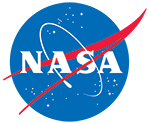
Soil Moisture Active Passive (SMAP) L4 Soil Moisture Ancillary Catchment Model Tile Space, Version 1
Data set id:
SMAP_L4_SM_ANC_CAT_TILE
DOI: 10.5067/H7EFVLIMG96U
This is the most recent version of these data.
Version Summary
Version Summary
Initial release
Overview
This ancillary SMAP product contains tile information for the NASA Land Data Assimilation System (LDAS) Catchment model, including center-of-mass latitude/longitude, minimum/maximum latitude/longitude, and the land area fraction of tiles.
Parameter(s):
GEOLOCATION
Platform(s):
MODELS
Sensor(s):
NOT APPLICABLE
Data Format(s):
Binary
ASCII
Temporal Coverage:
- 31 January 2015 to present
Temporal Resolution:
- Not applicable
Spatial Resolution:
- not applicable
- not applicable
Spatial Reference System(s):
Not Specified
Spatial Coverage:
- N:86.4S:-86.4E:180W:-180
Blue outlined yellow areas on the map below indicate the spatial coverage for this data set.
Data Access & Tools
A free NASA Earthdata Login account is required to access these data. Learn More
Documentation
General Resources
Help Articles
General Questions & FAQs
This article covers frequently asked questions about the NASA NSIDC DAAC's Earthdata cloud migration project and what it means to data users.
SMAP Ancillary data sets are used to produce SMAP Level-1, -2, -3, and -4 standard data products.
How to Articles
Many NSIDC DAAC data sets can be accessed using NSIDC DAAC's Data Access Tool. This tool provides the ability to search and filter data with spatial and temporal constraints using a map-based interface.Users have the option to: